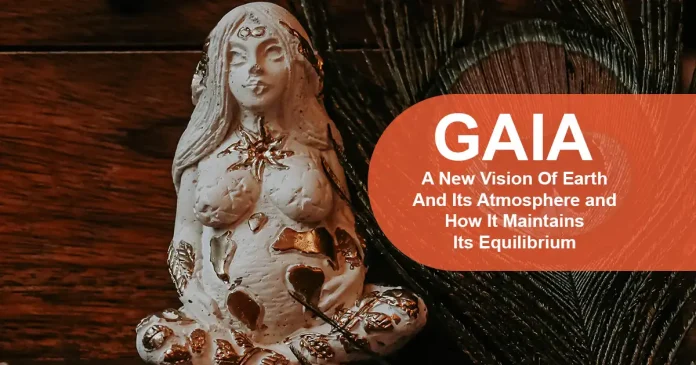EARTH SYSTEM SCIENCE
“If Charles Darwin traced the evolution of man and discovered the fact that man – Homo Sapiens – is and has to remain the most intelligent and thus powerful organism on the earth James Lovelock as the creator of post-humanist vision does see that humanity’s intelligence and competence is humbled by the restraints of nature. He exposes our vanity to the hard truth of our dependence on the living world. First of all, we have to study the atmosphere,” writes Mr. Bryan Appleyard, the world-famous Environmental journalist, and a keen student of ‘Gaia’ and of James Lovelock, who coined and propounded this theory.
Bryan Appleyard makes further study: “The message of Gaia is that, whatever wonders we can do with our science and technology, we are destined to remain enfolded by the quasi-organism that is the planet Earth. This should make us all environmentalists but, more importantly, it should restore the ancient truth of religion that we are, whether we like it or not, a part of something much larger than ourselves”.
Once, truly, we were told this by the great ancient religions. The ancient Greek Philosophies, the Chinese “Tao” and “Zen”, ‘Vedas’ and ‘Upanishads’ and ‘Buddhism’ in India have infallibly proclaimed the divine truth that humanity’s intelligence, competence, and superiority, be it any high, is but humbled by the aura of nature – by the restraints of the force that rules the universe (of which Earth and its creatures are but a very small part).
We cannot do everything, we cannot know everything and we cannot reduce anything to the flat neatness of theory.
This post-humanist vision of Lovelock has enlightened the so-called secular imagination of contemporary man and has charmed the snake to eat its own tail.
The atmosphere of Earth is an improbable and unstable element, held in balance by the activity of life. Instability and entropy – chaos – lead to an atmosphere of an improbable combination of elements and activities, which in all probability have given birth to life on earth and possibly somewhere else too… {contd. in part ii…}


